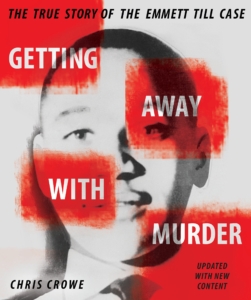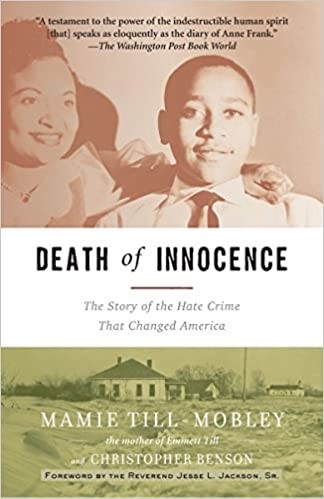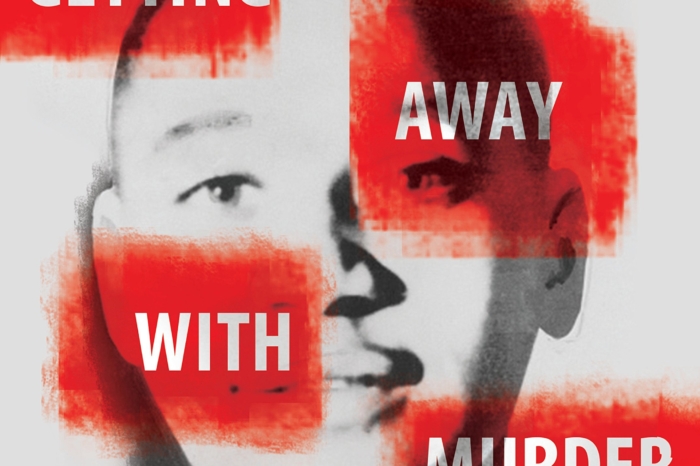The 65th Anniversary of the Murder of Emmett Till: 6 Key Resources for K-12 Education
“Emmett Till was my George Floyd. He was my Rayshard Brooks, Sandra Bland and Breonna Taylor. He was 14 when he was killed, and I was only 15 years old at the time. I will never ever forget the moment when it became so clear that he could easily have been me.”
– John Lewis, the civil rights leader and congressman who died on July 17, wrote this essay shortly before his death.
Continuing Pioneer’s ongoing series of blogs here, here, here, here, and here on curricular resources for parents, families, and teachers during COVID-19, this post focuses on the 65th anniversary of the murder of Emmett Till, which is August 28, 2020.
Going back years, we’ve worked to highlight great figures in America’s Civil Rights Movement, including MLK, the Rev. Fred Shuttlesworth, Bob Moses, Fannie Lou Hamer, and Emmett Till, with the hopes of showing the general public, educators, parents, and students the constructive role that better understanding U.S. history, civil rights, and race in America can play in positively shaping the future of our civilization. From Rosa Parks to the recent death of Congressman John Lewis, for over a half century civil rights figures have pointed to the horrific August 28, 1955 murder of Emmett Till as a major turning point in the history of race relations.
In addition to discussing current K-12 education policy matters, these op-eds, event videos, and resources can provide important context for understanding the Civil Rights era and the complexity of our shared past.
“Fannie Lou Hamer: ‘I Am Sick And Tired Of Being Sick And Tired‘” By Jamie Gass, Oct. 2017
“A Fire You Can’t Put Out”: Rev. Fred Shuttlesworth, Civil Rights, & School Choices” Pioneer event video, March 2017
“Teach students history of horrific slave trade” By Jamie Gass, Feb. 2017
“The Time To Act”: Pioneer video featuring Civil Rights history & Cheryl Brown Henderson, daughter of lead plaintiff in Brown v. Board of Ed
“Emmett Till Teaches Us, 60 Years Later” By Jamie Gass, Aug. 2015
“Pulitzer Prize Winners, Voter Registration Legend Featured at Event on Teaching the Civil Rights Movement” Pioneer event, January 2014
Other resources for parents and their schoolchildren to explore about the murder of Emmett Till, include:
- A Wreath for Emmett Till, by Marilyn Nelson (ages 12 and up)

“In 1955 people all over the United States knew that Emmett Louis Till was a fourteen-year-old African American boy lynched for supposedly whistling at a white woman in Mississippi. The brutality of his murder, the open-casket funeral held by his mother, Mamie Till Mobley, and the acquittal of the men tried for the crime drew wide media attention. In a profound and chilling poem, award-winning poet Marilyn Nelson reminds us of the boy whose fate helped spark the civil rights movement.”
2. Getting Away with Murder: The True Story of the Emmett Till Case, by Chris Crowe (ages 12 and up)

“In clear, vivid detail Chris Crowe investigates the before-and-aftermath of Till’s murder, as well as the dramatic trial and speedy acquittal of his white murderers, situating both in the context of the nascent Civil Rights Movement. Newly reissued with a new chapter of additional material–including recently uncovered details about Till’s accuser’s testimony–this book grants eye-opening insight to the legacy of Emmett Till.”
3. A Dream Of Freedom (Booklist Editor’s Choice. Books for Youth Awards), by Diane McWhorter (ages 8-12)
“In this history of the modern Civil Rights movement, Pulitzer Prize-winning author Diane McWhorter focuses on the monumental events that occurred between 1954 (the year of Brown v. the Board of Education) and 1968 (the year that Dr. Martin Luther King, Jr. was assassinated). Beginning with an overview of the movement since the end of the Civil War, McWhorter also discusses such events as the 1956 MTGS bus boycott, the 1961 Freedom Rides, and the 1963 demonstration in Birmingham, Alabama, among others.”
4. Death of Innocence: The Story of the Hate Crime That Changed America, by Mamie Till-Mobley & Christopher Benson (ages high school to adults)
 “The mother of Emmett Till recounts the story of her life, her son’s tragic death, and the dawn of the civil rights movement—with a foreword by the Reverend Jesse L. Jackson, Sr. In August 1955, a fourteen-year-old African American, Emmett Till, was visiting family in Mississippi when he was kidnapped from his bed in the middle of the night by two white men and brutally murdered. His crime: allegedly whistling at a white woman in a convenience store. The killers were eventually acquitted.”
“The mother of Emmett Till recounts the story of her life, her son’s tragic death, and the dawn of the civil rights movement—with a foreword by the Reverend Jesse L. Jackson, Sr. In August 1955, a fourteen-year-old African American, Emmett Till, was visiting family in Mississippi when he was kidnapped from his bed in the middle of the night by two white men and brutally murdered. His crime: allegedly whistling at a white woman in a convenience store. The killers were eventually acquitted.”
5. Emmett Till: The Murder That Shocked the World and Propelled the Civil Rights Movement, by Devery S. Anderson with a foreword by Julian Bond (ages high school to adults)

“Emmett Till: The Murder That Shocked the World and Propelled the Civil Rights Movement offers the first, and as of 2018, only comprehensive account of the 1955 murder, the trial, and the 2004-2007 FBI investigation into the case and Mississippi grand jury decision. By all accounts, it is the definitive account of the case.”
6. The Blood of Emmett Till, by Timothy B. Tyson (ages high school to adult)
“This extraordinary New York Times bestseller reexamines a pivotal event of the civil rights movement—the 1955 lynching of Emmett Till—“and demands that we do the one vital thing we aren’t often enough asked to do with history: learn from it” (The Atlantic).”
Get Updates on Our Education Research
Related Posts













